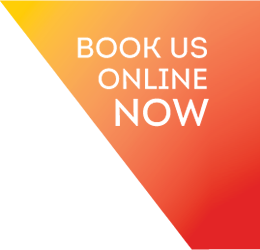The majority of New Zealand business owners do not have a business plan. This is severely decreasing their likelihood of progress and increasing their chance of failure.
To put it simply, a business plan is a basis for making decisions. Without anything to measure progress/results back to, business owners can get trapped in the process of repeating the same mistakes year after year. Wouldn’t it be better to learn from them?
Below we break down a very high level of what is included in a business plan and the questions you should be thinking about.
The Vision
What you are trying to create – the grand plan for your business.
Questions to ask yourself:
Why are you in business? What do you hope to achieve and when? How will the community and economy be better off from what you are doing?
The Problem Solved
Now we focus on the problem(s) that people have that your business can solve. Describe the types of people who are likely to buy your products and services.
Questions to ask yourself:
How and why clients or customers will be better off because of your business?
Your Competitive Advatage
Without a competitive advantage, you will be competing on price. Explain to customers why they should transact with you rather than your competitors.
Questions to ask yourself:
What can you provide to your customers that no one else can provide?
Your Offering
What products or services can you offer to the market. Think about the benefits they will get from the offering and what they will pay for it.
Questions to ask yourself:
Are you clear on the offering of your business, not the features of your service?
Assets & Resources
You will most likely need assets or resources to operate your business, in which case you will need to investigate how you can access these.
Questions to ask yourself:
What assets, equipment, resources and staff will you need to execute your plan? Turn your mind to the immediate requirements and the future requirement for the likes of administrative resource.
Marketing
You are going to need customers to make your business work. This will require a plan of how to get the attention of people who will be interested in your offering.
Questions to ask yourself:
How will you reach your potential customer? What will you tell them? Who will be doing this and what will it cost?
Objectives
It is important to document what you hope to achieve in the current year. When goal setting, make these specific and measurable.
Repeat this process for the following 2 years so you are planning 3 years ahead.
Questions to ask yourself:
Who will achieve these goals and by when?
Budget
If you are a new business you need to try and calculate the money you’ll need to get started to the best of your ability. Forecast your expected revenue and expenditure for the first year followed by the following two. This can be difficult due to unknowns so do the best you can.
If you have an established business, you should be doing the above for a rolling three year period.
Questions to ask yourself:
What are the costs of establishment, incorporation and launch? What money do you require from your business? What future spending or investment needs to be budgeted for?
Where To From Here?
If you’d like to book a free strategy call to discuss how to implement your business plan, you can book a time here.




